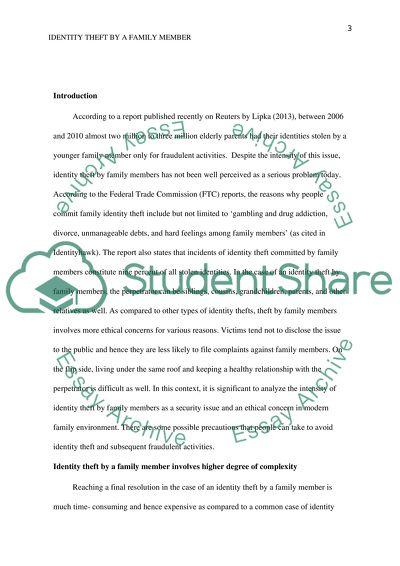Cite this document
(“Identity Theft by a Family Member: Legal and Ethical Issues Research Paper”, n.d.)
Identity Theft by a Family Member: Legal and Ethical Issues Research Paper. Retrieved from https://studentshare.org/social-science/1488143-identity-theft-by-a-family-member-legal-and-ethical-issues
Identity Theft by a Family Member: Legal and Ethical Issues Research Paper. Retrieved from https://studentshare.org/social-science/1488143-identity-theft-by-a-family-member-legal-and-ethical-issues
(Identity Theft by a Family Member: Legal and Ethical Issues Research Paper)
Identity Theft by a Family Member: Legal and Ethical Issues Research Paper. https://studentshare.org/social-science/1488143-identity-theft-by-a-family-member-legal-and-ethical-issues.
Identity Theft by a Family Member: Legal and Ethical Issues Research Paper. https://studentshare.org/social-science/1488143-identity-theft-by-a-family-member-legal-and-ethical-issues.
“Identity Theft by a Family Member: Legal and Ethical Issues Research Paper”, n.d. https://studentshare.org/social-science/1488143-identity-theft-by-a-family-member-legal-and-ethical-issues.


